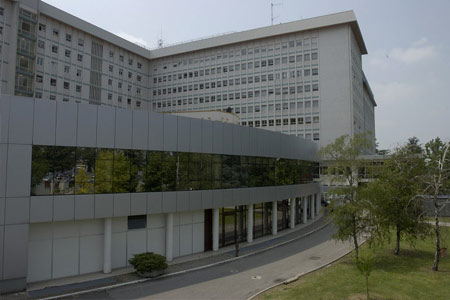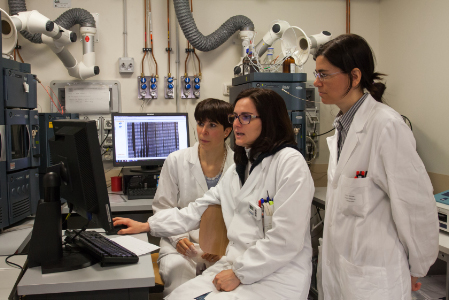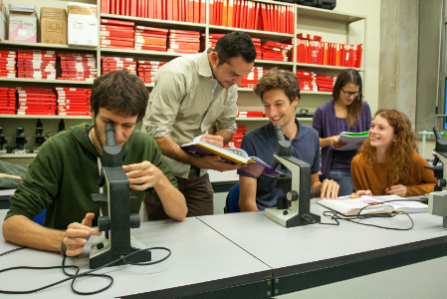N.I.H. GRANT NO. R01 AG025834-01A2
Elder age and inadequate folate intake are each strongly
implicated as important risk factors for colon cancer. In a preliminary study we observed that aging and
folate depletion alter one-carbon metabolism in the rodent colon, increasing uracil misincorporation into
DNA, thereby creating a predisposition to chromosomal and DNA aberrancy and carcinogenesis. By
the same token we observed that dietary folate at supplemental levels prevents the appearance of the
abnormal biochemical and molecular effects of aging in the colon. We also found altered expression of
several critical genes in response to aging and folate depletion. We, therefore, hypothesize that the
increased uracil content in DNA produced by aging and inadequate folate availability increases
chromosomal and genomic DNA damage, affects expression of critical genes and consequently
enhances colonic carcinogenesis. However, reduction of uracil in colonic DNA will reverse the procarcinogenic
effects of aging and folate depletion Our long-term goal is to find an effective strategy for
the chemoprevention of colon cancer. The studies outlined in this proposal are aimed at defining
molecular and cellular mechanisms that determine how aging and folate status affect colonic
carcinogenesis. The specific aim of this proposal is to determine whether such molecular anomalies
enhance colonic carcinogenesis and whether folate supplementation or any other modalities to reduce
uracil misincorporation attenuates such molecular changes and finally prevents cancer development.
We propose animal studies using a normal aging mouse model, a mouse model of colon cancer and a
genetically-modified mouse model, the latter mimicking a common genetic condition that diverts folate
more to nucleotide synthesis. By defining molecular pathways towards cancer modulated by aging and
folate, we will have a better understanding of the nutritional circumstances which constitute high risk
and thereby will be able to define the precise manner in which folate can be used effectively as
chemopreventive agents.







